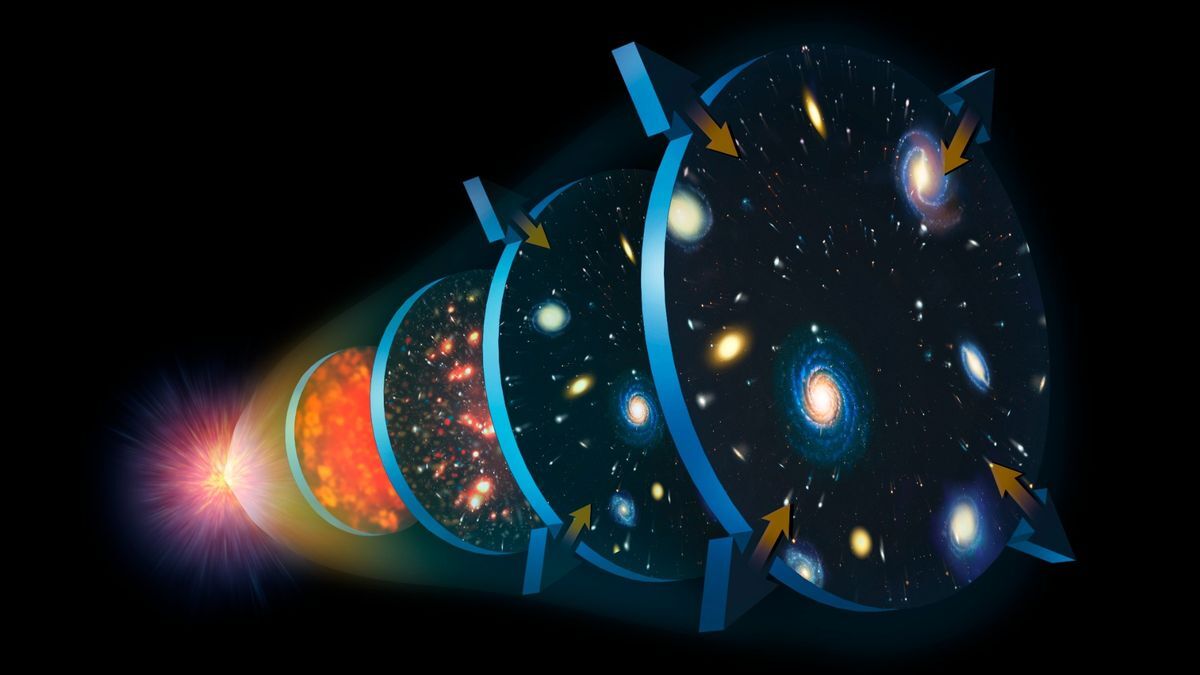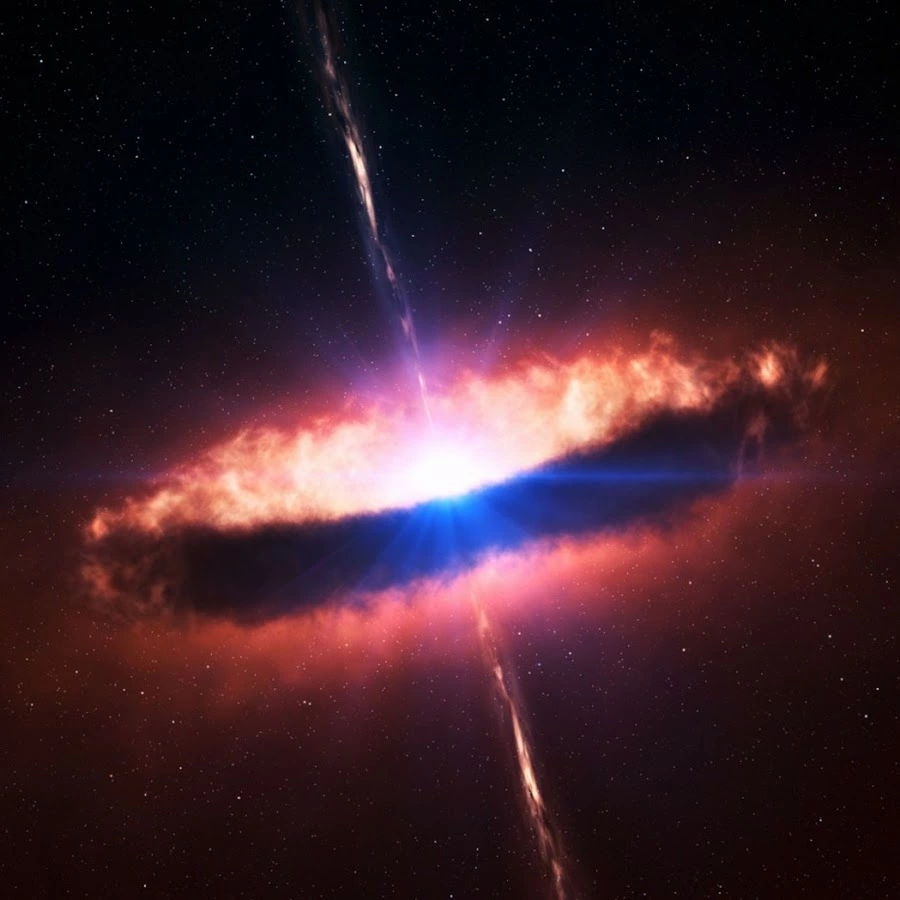TLDR: Depending on where we look, the universe is expanding at different rates. We can now confirm it’s not measurement error.
Oh. Well. That’s. Terrifying?
don’t worry, we’re expanding with it!
I’m not expanding! It’s just my big bones, y’know!
Uh, why?
I’m afraid of things I can’t understand.
You can make a religion out of that!
It’s not a matter of where we look, it’s the method we use to calculate the expansion. The 2 methods to calculate the expansion rate give us different results. For a good explanation, here is a YouTube playlist of videos by Dr. Becky Smethurst where she discusses & explains the “Crisis in Cosmology”: https://www.youtube.com/playlist?list=PLd19WvC9yqUf5TRqYoMYxEwjT6JIDW4Zn
removed by mod
Do all parts of a growing, living creature expand at the same speed?
Did you know that because your feet are closer to the gravitational center of the earth your head ages faster than your feet?
I did, I have no grey hairs on my feet.
A bat should be less affected by this uneven aging due to the whole sleeping upside down thing. They still spend some time upright so it balances out a little better than what you’d see with most of us who generally stay somewhere between prone/supine and standing up throughout the day.
Gonna go ahead and add “how much farther did my head travel than my feet due to the curvature of the earth” to my list of weird statistics I want an answer to
It would take something like a million years for your head to age more than a second. It’s a fun thing to tell people though lol
In America, our guts grow way faster than our brains, bc that’s where we do most of our thinking. :-D
Ohhh that makes sense! You have some REALLY smart people over there!
Damn straight - it has it right there in our flag (the red is bacon 🥓)!

Holy fucking shit. How have I never seen that version of your flag before? That other one is so boring why isn’t this one flying everywhere?
Bold of you to presume that it isn’t!? :-P
And if you think that’s something, wait till you see our history books:

And our newspapers:

(save us from ourselves?)
Well damn! No wonder you guys are so patriotic! I think I might be a bit jealous of your freedom and your news industry.
(Wish I could help 😞 I’m just up here in this other little North American country. The really cold one. Just wishing someone saves you from yourselves before that stink moves too far up and gets embedded in the carpet. Unfortunately we’ve been getting more and more whiffs of it in the past couple years. We may need help too.)
Yeah, it’s spreading all over the world. Again. Except this time we seem to be for rather than against it, for some reason? :-(
Yay!
It’s like the stars when observed at veryx2 far distance they start to behave weird. Blinking a bit faster than normal this might cause the reason for much faster expansion when calculating. Entropy suppose to be improbable right but at far distance all those improbable they probably all eventually add up. Just my thought anyway.
Have you ever had a dream that
That you, um, you had, you’ll, you would
You could, you do, you would you want you
You could do some, you…
You’ll do, you could you, you want
You want him to do you so muchYou could do anything, do anything
Have you ever had a dream
You could do anything, do anything
Have you ever had a dream
You could do anything, do anythingPerfect!
Lmao
Good riddance, the answer can never be too simple.
The human need for ‘constants’ may already be too simple. Gravity for example is treated as a constant value in Physics but is actually variable.
I might have missed something, but AFAIK, gravity is the same everywhere. Bigger things, bigger gravity, sure, but two equal things in different locations don’t have different gravitational attraction
Your understanding of what constitutes “Physics” (tip: it’s not a bunch of kids in a classroom) tells me that we can safely ignore your opinion.
deleted by creator
We abandoning materialism yet?
Not til we got them sweet, sweet asteroid mineralz. Parties responsible for that will dictate the direction humanity goes, imo
The Hubble constant seemed determined not to be constant.
The Hubble Suggestion just doesn’t sound the same.
Sounds like a quote from the Hitchhikers Guide
Get your freaking towel and get outta here, man!
Now that’s a hoopy frood who knows where his towel is
It’s called Webb-constant now.
deleted by creator
It seems odd to me that the universe would be expanding at the same consistent spherical shape. I’ve seen plenty of explosions and they never look like that. The big bang, which consisted of literally all matter in the universe would surely be no different.
I think it gets more spherical the larger it gets. The initial explosion from nukes are fairly spherical if you look at the old film. https://www.npr.org/sections/pictureshow/2010/09/28/130183266/abomb
deleted by creator
The big bang (if it is still a valid theory) would have been unlike any explosion you have ever witnessed. The big bang was not an explosion of only matter, since time and space were both created during this event as well.
Really, calling it an explosion is not right in the first place. It’s one of those unfortunate cases of bad naming in science, another being ‘The God Particle’ (which was originally supposed to be The Goddamn Particle.) Physicists prefer using the word ‘expansion.’
The only thing spherical is the visible universe from earth that we can see. Both in time and distance. Due to the expansion of space that volume is increasing.
The entire universe could be infinite and take on any number of infinite shapes. Our local universe could be completely different from the rest of the universe and we’ll never be able to know…it’s wild.
Recent experiments trying to determine what the curvature of space-time is in the visible universe has concluded that it’s pretty much flat But it’s entirely possible that we’re just on a very very very large (infinite?) curved surface of spacetime that just looks flat to us…
I would bet on it in fact. It makes logical sense to from my perspective.
I feel (intuitively (which is almost certainly wrong)) that it’s expanding like a fluidic wave. Think lighting a gasoline puddle on fire.
There’s some interesting ways of understanding “dark energy.” This is just one.
I’m no way an expert in this, but I’ve been told it’s wrong to think of the expansion of the universe like an explosion where everything moves away from a single point, but rather that the space between each object is expanding, comparing it to the way the surface of a balloon expands (if you were to paint multiple dots on the surface of a balloon they would all move away from each other when you inflate the balloon), though I like to think of it as yeast bread expanding since that’s 3d.
Have you considered the universe may actually be a torus instead of a sphere, eg: bagel-verse?
Dodecahedron. Fight me
Yes that sure is an option, but it doesnt fit in my pastry-centric theories of the universe.
Except it’s not that they are finding the expansion rate is different in some directions. Instead they have two completely different ways of calculating the rate of expansion. One uses the cosmic microwave background radiation left over from the Big Bang. The other uses Cepheid stars.
The problem is that the Cepheid calculation is much higher than the CMB one. Both show the universe is expanding, but both give radically different number for that rate of expansion.
So, it’s not that the expansion’s not spherical. It’s that we fundamentally don’t understand something to be able to nail down what that expansion rate is.
It’s because CMB stopped for coffee, obviously.
(That was a great explanation, btw.)
Just to confirm, the expansion is the same in different directions under both methods of measuring?
Under the CMB method, it sounds like the calculation gives the same expansion rate everywhere. Under the Cepheid method, they get a different expansion rate, but it’s the same in every direction. Apparently, this isn’t the first time it’s been seen. What’s new here is that they did the calculation for 1000 Cepheid variable stars. So, they’ve confirmed an already known discrepancy isn’t down to something weird on the few they’ve looked at in the past.
So, the conflict here is likely down to our understanding of ether the CMB or Cepheid variables.
I wish the article had broken it down the way you did. Thanks!
It just wraps around, like a videogame. Duh…
Ah ok. Thanks for the correction.
Spherical? We don’t know if the universe is of finite size.
As far as we know, it could just as well be infinite, and the expansion happens everywhere.
Everything is relative so the only thing we know is that the distance between galaxies increases. But we don’t know if there’s a “border” of the universe or not.
Maybe Maybe there’s something seriously wrong with the Universe? Why is it always US who are wrong?
The universe is, frankly, a complete shitshow.
I mean it’s got some valid points but let’s not get ahead of ourselves.
I’ve heard this has made many people very angry and is widely regarded as a bad move
Hey, it’s me, the Universe. I just wanted to say, this is no longer working for me. And if it makes you feel better, sure it’s not you, it’s me. Please don’t call.
I like to think that whenever we discover something new, the universe just got an update and we discovered the patch notes.
From my limited understanding, the discrepancy comes from the two ways to measure the universe’s expansion: calculation from cosmic microwave background and calculating a cepheid variable, which uses pulsating stars (pulsars?)
Isn’t it more likely that one, or both, ways of measuring are wrong? As in, they’re not useful for measuring the universe’s rate of expansion?
Isn’t it more likely that one, or both, ways of measuring are wrong? As in, they’re not useful for measuring the universe’s rate of expansion?
Now, scientists using the James Webb and Hubble space telescopes have confirmed that the observation is not down to a measurement error.
I’m trying to understand the distinction you are making. Could you elaborate?
Not a scientist but the article seems to mean that they checked that the tools themselves had no defects giving incorrect measurements.
This comment seems to be questioning the methodology of how we measure the rate of expansion so tackles a different aspect of the conversation.
But that’s about as much as I can contribute haha
Pretty much this. In a (hopefully) more direct metaphor, are we sure we’re using a ruler to calculate the length of a line, and not using a ruler to calculate the temperature of a paper?
I think the distinction is between arguing that there’s a discrepancy because the measurement is bad, or because the measurement doesn’t measure what we think it measures.
Is the theory right and we have a measurement error, or is the theory flat out wrong?
The model is wrong. Get hype
Over and over again. That scope is really opening things up.
It was the same for the Hubble telescope back in the day (and still!)
Dogulas knew:
I always said there was something fundamentally wrong with the universe.
– Arthur Dent, the Hitchhiker’s Guide to the Galaxy Radio Series.
Sounds more like Arthur knew…
One day science will reach the Orphic understanding of the origin of the Cosmos.
Well, maybe at least this version:
Next after them, Epicurus introduced the world to the doctrine that there is no providence. He said that all things arise from atoms and revert back to atoms. All things, even the world, exist by chance, since nature is constantly generating, being used up again, and once more renewed out of itself—but it never ceases to be, since it arises out of itself and is worn down into itself.
Originally the entire universe was like an egg and the spirit was then coiled snakewise round the egg, and bound nature tightly like a wreath or girdle.
At one time it wanted to squeeze the entire matter, or nature, of all things more forcibly, and so divided all that existed into the two hemispheres and then, as the result of this, the atoms were separated.
- Epiphanius of Salamis, Panarion book 1 chapter 8
Very fun in the context of Neil Turok’s CPT symmetric universe theory as an explanation for the baryon asymmetry problem, so its discussion of matter being squeezed and then splitting into two which divided the particles may end up on point even if incorrect in their interpretation regarding the atmosphere.
Why couldn’t this still be “big bang”? Look at a grenade for example. When it explodes, a shock wave expands from it in a near perfect sphere, but the fragments previous packed inside of it explode out at different speeds depending on their mass.
If you were in the center of that explosion, measuring the speed of fragments traveling away from you, they’d travel at different speeds. Only the initial shockwave would be constant.
Maybe because the speed of things is not the same thing as the speed of space expansion.
This problem is not AT ALL about the geometrical shape of the expansion of the universe. It’s about 2 different formulas that should give the same result for the rate of the universe, but give different results. I don’t blame you, the article title is extremely misleading.
This is more like you measure the fragment speeds with both a laser and with radar, and get different readings off the same fragment.



















